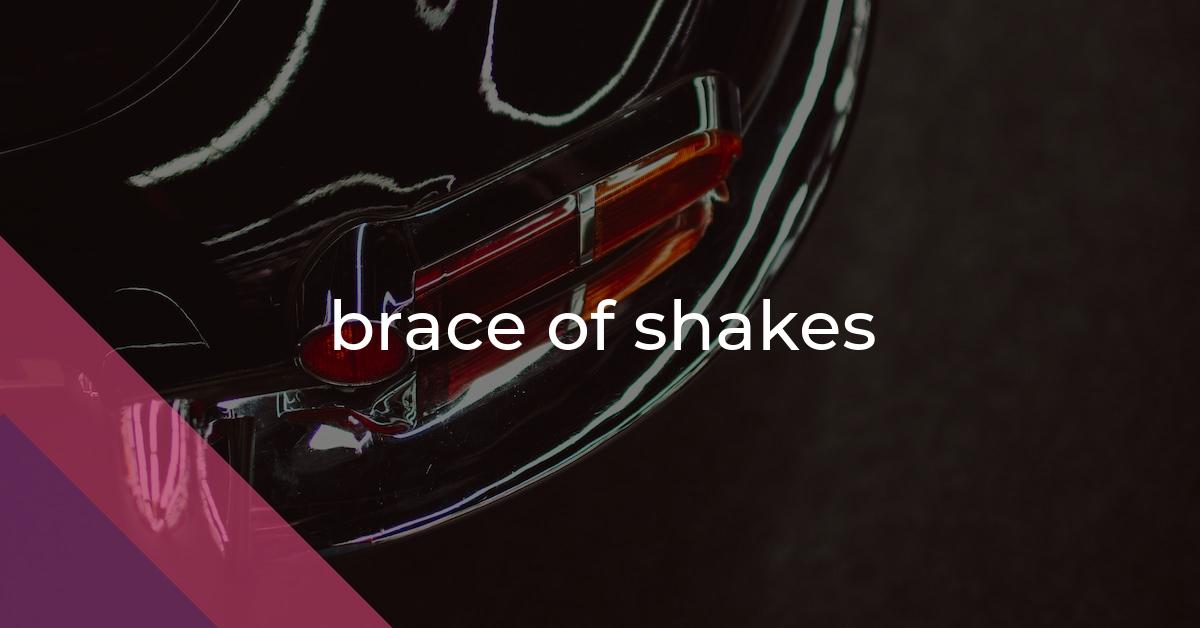brace of shakes: Idiom Meaning and Origin
What does ‘brace of shakes’ mean?
The idiom 'brace of shakes' refers to a brief period of time, usually a few seconds or moments, emphasizing that something will happen quickly or without delay. It is often used to indicate a short amount of time for an action or event to occur.

Idiom Explorer
The idiom "shake a leg" means to hurry up or get moving quickly, typically used as a command or request to someone who is taking too long or being slow. Its origin is uncertain.
An 'eyeblink' refers to an extremely brief moment of time, typically lasting only a fraction of a second.
The idiom "element of surprise" refers to the unexpected or unforeseen component or factor that creates a stunning or shocking outcome in a situation.
The idiom "do the dash" means to make a quick and hasty exit from a place or situation, often to avoid trouble or for some urgent reason.
The idiom "don't hold your breath" means to not expect something to happen or to not have high hopes for a particular outcome.
The idiom "dash off" means to quickly write or complete something, usually in a careless or hurried manner.
The idiom "close on the heels of" means to happen very soon after something else, usually referring to events, developments, or actions that occur in quick succession.
The idiom "catch one's breath" means to pause and take a moment to rest after exertion or excitement, usually to recover from physical or emotional exhaustion.
The idiom "calm before the storm" refers to a period of apparent peace and tranquility that precedes a sudden and turbulent event or situation.
The idiom "bounce back" means to recover quickly from a setback or failure, showing resilience and the ability to overcome obstacles.
The Intriguing Origin
The idiom "brace of shakes" is a relatively obscure phrase that is not widely used or recognized by the general population in the United States. Limited information is available about its origin and specific usage, making it challenging to provide a comprehensive analysis. However, based on the available facts, it can be inferred that "brace of shakes" is associated with the idea of a short period of time or a quick moment, often used in phrases such as "in a brace of shakes" or "in a brace of a lamb's tail."
The term "brace" in this context likely originated from the Old English word "brec," meaning a pair or a couple. Over time, it evolved to refer to a small number of things grouped together. The term "shakes," on the other hand, is believed to have derived from the Old English and Dutch word "scake," meaning a sudden motion or a quick action.
In various idiomatic expressions, "brace of shakes" is used to convey a sense of speed, brevity, or immediacy. It suggests that something will happen quickly or that a task will be completed in a short amount of time. For example, one might say, "I'll be with you in a brace of shakes," meaning they will be ready or available in a very short period. Another related idiom, "blink of an eye," is used in a similar way to describe something happening very quickly. It emphasizes the idea of a swift, almost imperceptible action or event.
In addition to "blink of an eye," another related idiom is "shake a leg," which means to get moving or start doing something quickly. The phrase "shake a leg" shares the element of speed and urgency with "brace of shakes." It conveys a sense of urgency or the need to act promptly. For example, one might say, "We need to shake a leg if we want to catch the train."
"at a moment's notice" is another idiom that shares a similar concept with "brace of shakes." It indicates that someone or something is prepared or ready to act immediately. It implies that there is no time to waste and that action is required without delay. For instance, one might say, "He was always available at a moment's notice to help out with any task."
Lastly, the idiom "calm before the storm" has a contrasting meaning to "brace of shakes," but it still relates to the concept of time and events. "Calm before the storm" describes a period of tranquility or peace that occurs before a major event or upheaval. While "brace of shakes" suggests a quick and efficient action, "calm before the storm" conveys a pause or lull before a significant happening.
While the idiom "brace of shakes" may not be widely understood or commonly used, it offers an intriguing glimpse into the richness and diversity of idiomatic expressions in the English language. Its existence raises questions about the origins and evolution of language, highlighting the potential for further exploration and discovery. Delving deeper into the etymology and usage of such idioms could unravel hidden cultural and historical threads, providing valuable insights into human communication and expression.
Example usage
Examples of how the idiom "brace of shakes" can be used in a sentence:
- He finished his presentation in a brace of shakes and left the room.
- The carpenter fixed the broken chair in a brace of shakes.
- Once I tried the new recipe, I prepared a delicious meal in a brace of shakes.
More "Superstition" idioms



